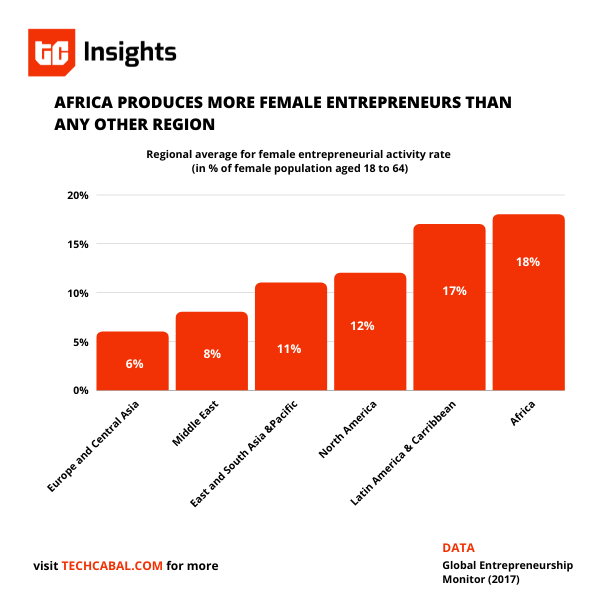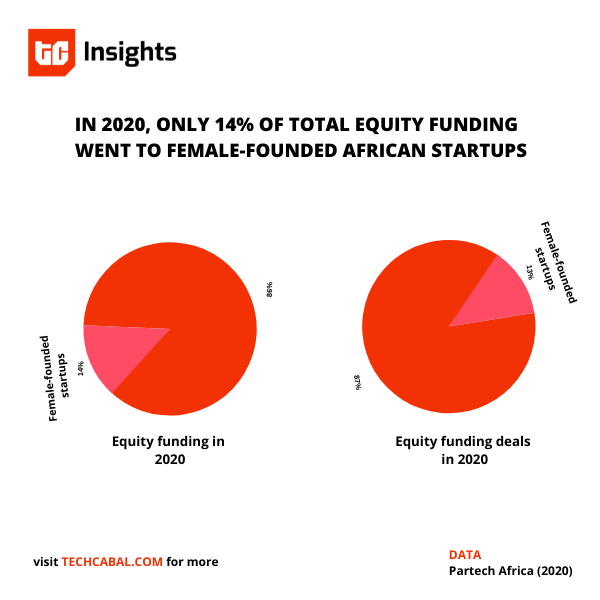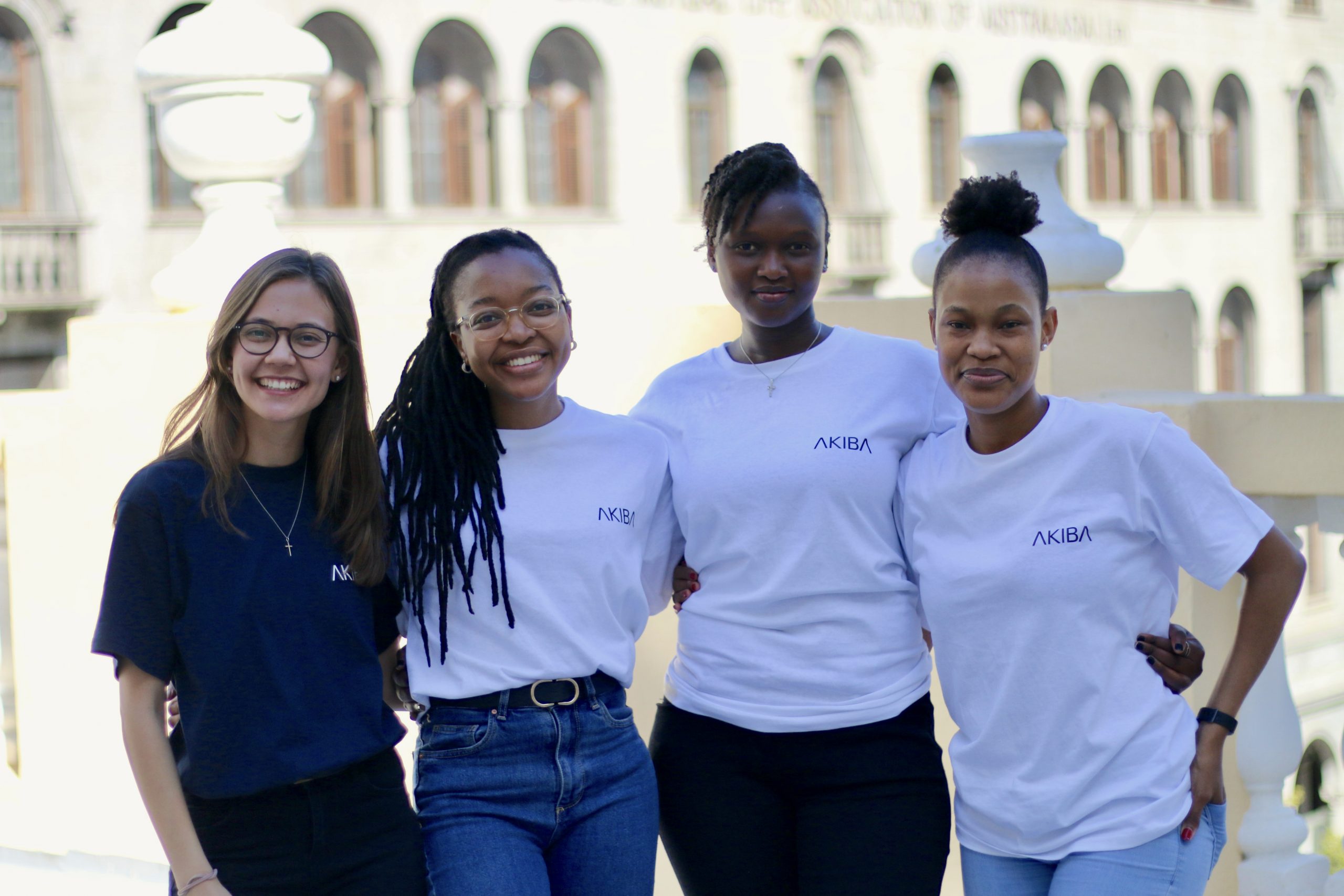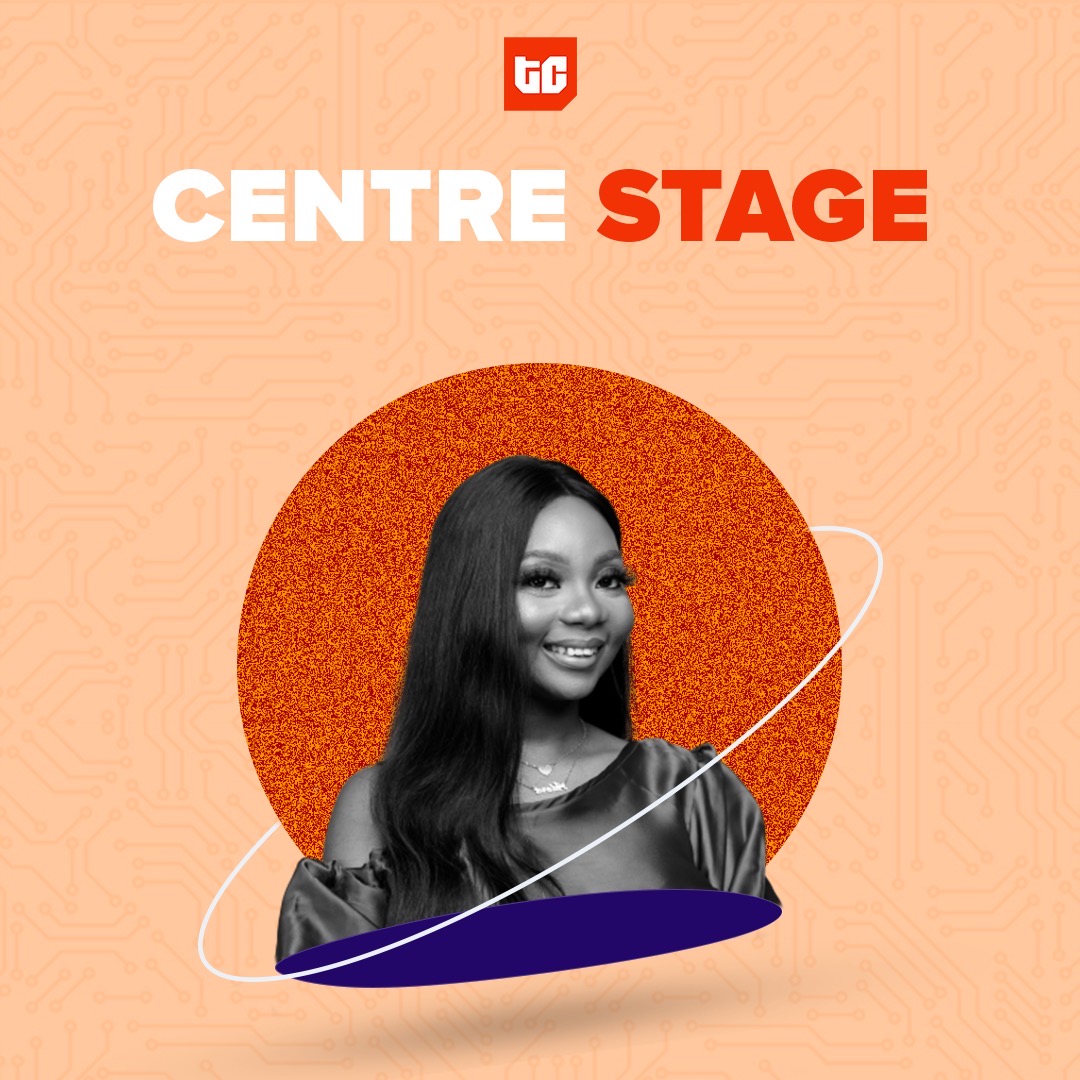
August 2nd, 2021
The Next Wave provides a futuristic analysis of BizTech and innovation in Africa. Subscribe here to get it directly in your inbox on Sundays at 3 PM (WAT).
Hello, it’s Koromone. Africa is swimming neck-deep in the ocean of digital evolution and female founders on the continent are no longer interested in sitting on the sidelines or paddling in the shallow end.
Globally, female entrepreneurs receive less funding than their male counterparts. The existing funding gap not only affects women, but also women of color who are forced to work twice as hard to be in the same rooms as white male entrepreneurs.
78 cents – this is how much women entrepreneurs in the US generate per dollar invested, compared to the 31 cents men generate per dollar invested. The stark reality is that female entrepreneurs are not receiving the capital they need to move their business from early-stage to scale-up to thriving enterprise. Additionally, even though 38% of startup founders are women, only a meagre 2% of investment money goes into women-led businesses in the US, according to a study carried out by the European Investment Bank (EIB).
This edition of Next Wave will explore how female founders in Africa access much-needed capital and spotlight VCs and funds that are invested in backing female-led startups on the continent.
Partner Message

The Flutterwave Mobile app: The app that turns any smartphone into a mobile POS is now redefining commerce. The Flutterwave Mobile app makes it super convenient for anyone to take their business with them anywhere, anytime. Learn how you can take your business anywhere, anytime here.
Zoom in: Who is funding African female co/founders?
Now, let’s bring this funding disparity back home. How are African female founders raising capital in this current funding climate? Which VCs are dedicated to funding female-led startups on the continent and how far are they willing to journey with these businesses from seed stage to probable unicorn status?
In a recent report conducted and published by Briter Bridges, they discovered that more than 80% of the co/founders who participated in their survey were men. Which means that only 20% of the women sampled occupy C-suite positions. Africa’s entrepreneurial ecosystem has a gender gap problem that is partly responsible for the dearth of funding in women-led businesses.
Female entrepreneurs in emerging markets stand the risk of running and self-funding for a longer period of time when compared to their male counterparts. Why? Because most developing nations have not fully embraced women as deserving recipients of social, economic, and political support. In 2015, Nigeria female adult illiteracy rate stood at 61.4%. If a high percentage of adult women cannot read or write, how then could they successfully compete in the fast-paced global economy?

The African Development Bank puts the funding gap for women entrepreneurs in Africa at $42 billion. Research shows that if women overcome the constraints that hinder the growth of their businesses and gain access to finance, they are likely to generate more revenue and a better return on investment.
Lack of gender diversity on investment boards contributes to the funding gap. Men dominate the venture capital world, with women holding only 10 percent of senior positions in private equity and venture capital firms globally.
Also, there is an unconscious bias in investor decisions when female entrepreneurs are concerned.
Research by the Harvard Business Review in 2017 found that women were asked more prevention questions (focusing on potential losses or risk) while men were asked more promotion questions (focusing on potential gains) when pitching to venture capitalists. This bias has a great effect on funding outcomes. Those who addressed promotion questions raised at least six times more money than those who were asked prevention questions.

Zoom out: The rise of VC funds interested in backing African female founders
Thankfully it’s not all doom and gloom for African female founders because in more recent times, a small crop of VCs and investors have announced that they are interested in backing female entrepreneurs on the continent.
We love to see it.
Iyin Aboyeji – who is oftentimes referred to as a ‘serial entrepreneur’ – announced earlier this year that Future Africa will invest up to a $1 million in female tech founders. An unconventional move that sets the founder apart from his peers– as it did when he co-founded Andela and led Flutterwave as CEO for two years.
Then there’s FirstCheck; an angel fund founded by Eloho Omame – former managing director of Endeavor Nigeria – and Odun Eweniyi, current co-founder and COO of PiggyVest. What’s just as good as one female angel? Two female angels! FirstCheck is a female-led and female-focused fund serving the continent. The fund’s primary goal is to invest up to $25,000 in six selected African female founders or female-led teams. FirstCheck will also work with each woman, or team, and help them raise a sizable pre-seed round within 12 months of their confirmation.
With more female entrepreneurs gaining both local and global traction and attention, I’m hoping Africa sees an influx of angel funds dedicated to backing female-led and female-focused startups.
Partner Message

Big Brother Naija is officially in full swing and if there is one thing technology and reality TV shows have in common, it is the ability to keep a very demanding audience entertained. Here is a deep dive into why BBN and Tech are the perfect couple.
Have a great week
Thank you for reading Next Wave. Please share today’s edition with your network on WhatsApp, Telegram, and other social media and messaging platforms. Got suggestions, comments or ideas? Send an email to editor@techcabal.com.
Subscribe to our TC Daily Newsletter to receive all the technology and business stories you need each weekday at 7 AM (WAT). Follow TechCabal on Twitter, Instagram, Facebook, and LinkedIn to stay engaged in our real-time conversations on tech and innovation in Africa.
— Koromone Koroye, Managing Editor, TechCabal.





















